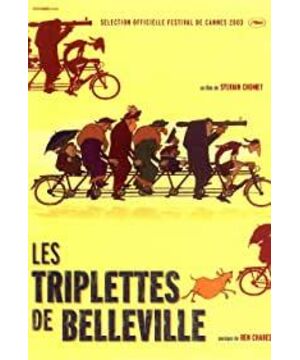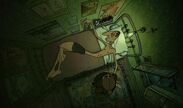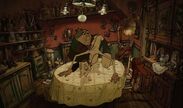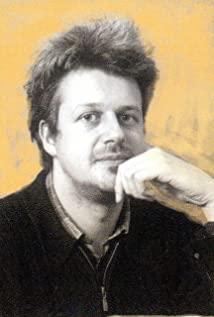In World War I, the meat grinder-style tactics ruined several generations of France. It was not until after World War II that France was completely industrialized. Railways were built in the town, and white fences were renovated by viaducts.
The boy in the small town who has lost his parents is growing well under the meticulous care of his grandmother. One day, he is finally spotted by the Mafia and goes to the other side of the Atlantic Ocean.
Meidu entered the industrial age one step earlier than France. It is highly developed, but also flashy and corrupt.
The grandma, who has never left the town in her life, spent the last coin on her body and took her old dog into the beautiful city. From a small town to a city, it is like moving from one dimension to another. It wasn't until the three Meidu sisters took him in and the train flew past the window to find a sense of familiarity.
The Mirador Sisters were singers of the Jazz generation when they were young. They had recorded records and video tapes, and they were popular all over the country. After old age, play on the team, playing experimental music with refrigerators, newspapers, and vacuum cleaners (? It seems to be a kind of jazz).
Fame and talent did not bring them a lot of wealth. They always rented low-cost apartments on the fringe of the metropolis and lived by eating frogs in the river. However, despite their poverty, they are never stingy with musical instruments. Not only do they hang all over the walls of the apartment, but the refrigerator vacuum cleaners used for playing are also carefully maintained.
The three sisters' inseparable performance costumes are full of the imprints of the Belle Epoque. They live in the bottom of the grotesque metropolis of Mirador. They are stubborn artists and rooted duckweeds.
The dark side of Mirador is reflected in the Golden Cave, the Mafia and the capitalists.
After the war, the French mafia who immigrated to Mirador from Sicily and other places during the post-war emigration wave also established their own forces in Mirador. They operate an underground casino and train riders like horse racing, attracting a large number of Mirador capitalists who bet their lives.
Everyone looked cold, and they all wore a three-piece suit conforming to the etiquette. They were loosely cut, shoulder pads were high and raised, and they were of the same color as the mourning suit.
When they gathered in the Pinjin Cave, they looked like building blocks that could be built up or split at will. It was hard to tell the difference between this pile and that pile.
The nightclub manager is also very interesting.
In the film, he either straightened his chest tall, nodded and bowed, or knelt down to beg for mercy. The social status between the nobleman and the footman made him never stand up straight.
The whole movie is just over an hour.
Although the core of the story is simple, the irony is strong without losing blood. At the same time, the music is beautiful, the painting style is unique, the foundation is solid, and the vision is far-reaching.
Generally speaking, it is very elegant and a movie with a very old European attitude.
View more about The Triplets of Belleville reviews











